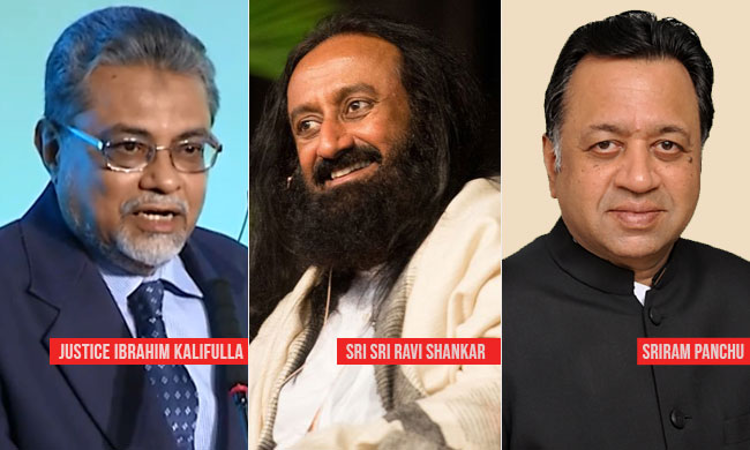Meet The Mediators In Ayodhya-Babri Masjid Title Dispute Case
LIVELAW NEWS NETWORK
8 March 2019 11:25 AM IST

Next Story
8 March 2019 11:25 AM IST
The Constitution Bench of Supreme Court today referred the Ayodhya-Babri Masjid land dispute case for mediation. The Court has constituted a panel of mediators.Coincidentally, all the panel members hail from Tamil Nadu.Here is a background of the panel members.Justice F M Ibrahim KalifullahThe Court has appointed former SC judge Justice Fakkir Mohammed Kalifullah as the Chairperson of...
